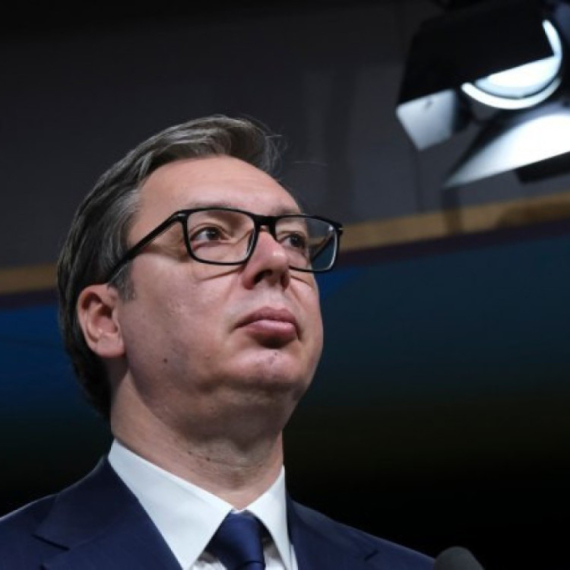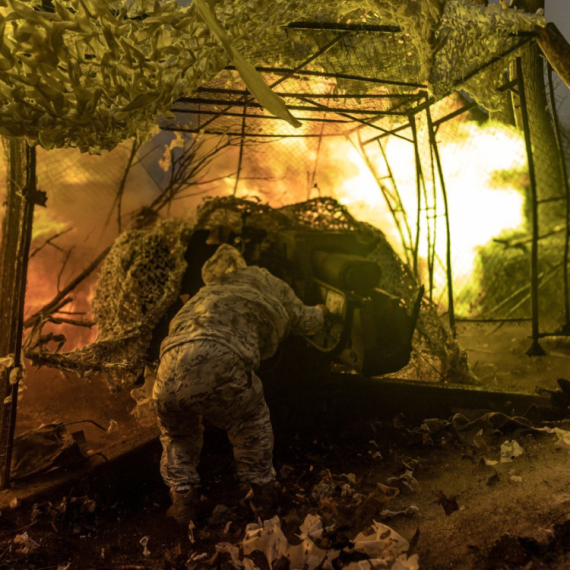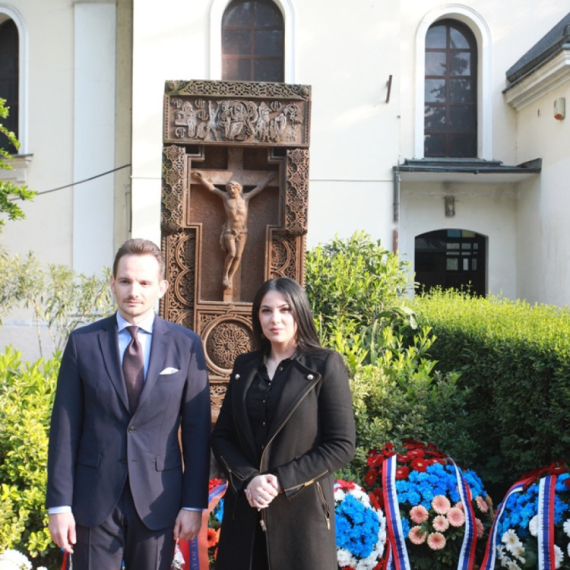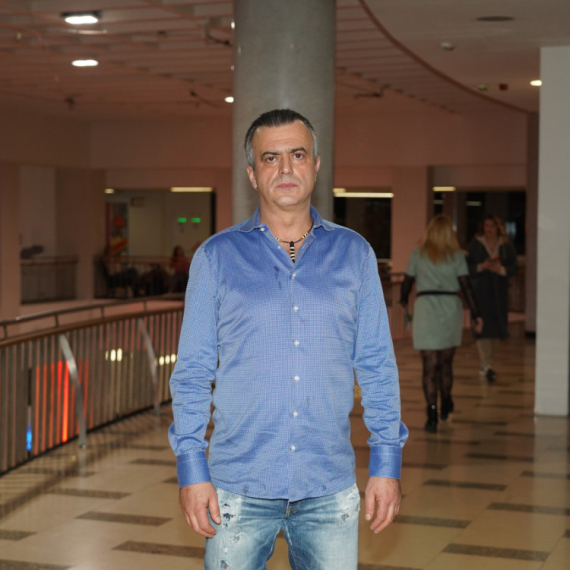Šešelj trial hears intercepted Karadžić conversation
The trial of Vojislav Šešelj continued with tape-recordings of intercepted phone conversations from 1991/92.
Wednesday, 16.07.2008.
15:58

The trial of Vojislav Seselj continued with tape-recordings of intercepted phone conversations from 1991/92. According to the prosecution, the material proves the existence and functioning of a joint criminal enterprise involving the Serb Radical Party (SRS) leader. Seselj trial hears intercepted Karadzic conversation After a whole week in closed session, parts of the trial continued in open session today to allow the public to hear audio recordings of intercepted telephone conversations which, according to the prosecution, show that the defendant was mixed up in the joint criminal enterprise set forth in the indictment. The hearing went into closed session every time the prosecution or judges addressed protected witness VS-1112 who has been testifying for four days. The first recording was that of a conversation on October 12, 1991 between Radovan Karadzic and his poet friend, Gojko Djogo. Karadzic says Muslims would “disappear from the face of Earth“ if war broke out. In his words, Sarajevo would be “the blackest prison“ where “300,000 Muslims would die“, because they “stand no chance“ against the 300,000 armed Serbs supported by the army and wanting to “fight to their last breath“. Karadzic and Djogo criticize Milosevic for “relying on Seselj and his group“, whom they describe as “nice“ but “neither significant nor serious“. The other recording played today in court showed how the joint criminal enterprise functioned, the prosecution contends. On July 8, 1991, Slobodan Milosevic phoned Karadzic to advise him to get in touch with General Uzelac, the commander of the JNA Banja Luka Corps. General Uzelac was to provide armed and helicopter transport for all volunteers from Karadzic’s Bosnian Serb Democratic Party (SDS) to reinforce the so-called Banja Luka group in the Bosnian Krajina and in Kupres. This was "of strategic importance to the future RAM". Milosevic then went on to praise "the lunatic Seselj" for having violently and vulgarly attacked the Serbian opposition for their criticism of the JNA. The defendant opposed the admission of the transcripts of the intercepted telephone conversations into evidence. In his view, this was an act of “unconstitutional eaves-dropping“ without a court order, carried out by an “illegal and conspiratorial organization”. Seselj questioned the authenticity of the recordings, saying that there was an “uneven tone“, and that the recording was irrelevant to his case. In his opinion, the conversation between Karadzic and Djogo could show only that there had been some kind of joint enterprise between the SDS and Dragoljub Micunovic’s Democratic Party (DS) in Serbia since Djogo was one of its founders. The SRS, the defendant went on to say, had been in “bitter conflict“ with the DS, initially when it was led by Micunovic, and later under Zoran Djindjic. Seselj’s party could not therefore have been part of any enterprise together with them. He said that Milosevic’s “praise“ of the attack launched by “the lunatic Seselj” against the opposition as proof of Milosevic’s “overall animosity“ towards him because Seselj was an anti-communist, “ready to die in the fight against communism“. All of which, Seselj concluded, meant that it was not possible for the two of them to have taken part in the same criminal enterprise.
Šešelj trial hears intercepted Karadžić conversation
After a whole week in closed session, parts of the trial continued in open session today to allow the public to hear audio recordings of intercepted telephone conversations which, according to the prosecution, show that the defendant was mixed up in the joint criminal enterprise set forth in the indictment.The hearing went into closed session every time the prosecution or judges addressed protected witness VS-1112 who has been testifying for four days.
The first recording was that of a conversation on October 12, 1991 between Radovan Karadžić and his poet friend, Gojko Đogo. Karadžić says Muslims would “disappear from the face of Earth“ if war broke out.
In his words, Sarajevo would be “the blackest prison“ where “300,000 Muslims would die“, because they “stand no chance“ against the 300,000 armed Serbs supported by the army and wanting to “fight to their last breath“. Karadžić and Đogo criticize Miloševic for “relying on Šešelj and his group“, whom they describe as “nice“ but “neither significant nor serious“.
The other recording played today in court showed how the joint criminal enterprise functioned, the prosecution contends.
On July 8, 1991, Slobodan Miloševic phoned Karadžić to advise him to get in touch with General Uzelac, the commander of the JNA Banja Luka Corps. General Uzelac was to provide armed and helicopter transport for all volunteers from Karadžić’s Bosnian Serb Democratic Party (SDS) to reinforce the so-called Banja Luka group in the Bosnian Krajina and in Kupres. This was "of strategic importance to the future RAM".
Milošević then went on to praise "the lunatic Šešelj" for having violently and vulgarly attacked the Serbian opposition for their criticism of the JNA.
The defendant opposed the admission of the transcripts of the intercepted telephone conversations into evidence. In his view, this was an act of “unconstitutional eaves-dropping“ without a court order, carried out by an “illegal and conspiratorial organization”.
Šešelj questioned the authenticity of the recordings, saying that there was an “uneven tone“, and that the recording was irrelevant to his case. In his opinion, the conversation between Karadžić and Đogo could show only that there had been some kind of joint enterprise between the SDS and Dragoljub Mičunović’s Democratic Party (DS) in Serbia since Đogo was one of its founders.
The SRS, the defendant went on to say, had been in “bitter conflict“ with the DS, initially when it was led by Mičunović, and later under Zoran Đinđić.
Šešelj’s party could not therefore have been part of any enterprise together with them. He said that Milošević’s “praise“ of the attack launched by “the lunatic Šešelj” against the opposition as proof of Milošević’s “overall animosity“ towards him because Šešelj was an anti-communist, “ready to die in the fight against communism“.
All of which, Šešelj concluded, meant that it was not possible for the two of them to have taken part in the same criminal enterprise.










































Komentari 4
Pogledaj komentare